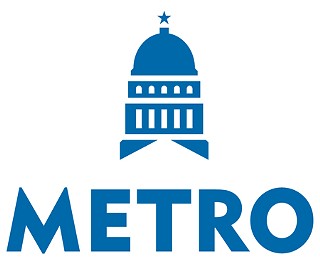Nonprofits Not Impressed by Cap Metro Proposal
Cap Metro draws fire over proposal to start a nonprofit for low-income riders
By Lee Nichols, Fri., Nov. 6, 2009
You can lead a horse to the bus stop, but you can't make it get on board.
Two weeks ago, we outlined a proposal being floated by Capital Metro for the creation of a nonprofit charity to address the needs of Central Texans who have no choice but to use mass transit ("Helping the 'Transit-Dependent,'" Oct. 23). The idea is that the nonprofit would take advantage of possible funding sources not currently being used, take pressure off Cap Metro (which says it needs to raise fares for sustainability reasons), and allow other nonprofits currently helping clients with transportation issues to get back to their core missions.
The initiative will require some enthusiasm from the nonprofit community, and a few conversations the Chronicle has had since that article was published indicate it may be a tough sell.
"Not any of the social services agencies have bought into this," said D'Ann Johnson of Texas RioGrande Legal Aid, an organization that provides free legal assistance to low-income people. After community outreach specialist John-Michael Cortez of Cap Metro made a presentation to the Basic Needs Coalition of Central Texas, which includes Texas RioGrande Legal Aid and many other nonprofits, Johnson called it a "dog-and-pony show" and said: "There was no response. Those are all the people that work with low-income persons.
"Basically, it's outrageous that Cap Metro would make the claim that it's not part of their core mission to help the transit-dependent," Johnson said, refuting Cortez's assertion that Cap Metro is not a social services agency but a transit company with a broad mission to serve the entire community. "That would be why they get a one-cent sales tax," Johnson said. "They're supposed to be running a public service.
"Cap Metro is trying to say they're not responsible anymore for poor people," Johnson went on. "That's not acceptable to me. I can't speak on behalf of the other organizations, because we didn't take a position, [but] after John-Michael left, I said, 'Do we need to talk about this?' And everybody says, 'We don't see any reason for it.' And that was it. We didn't waste any more time having a discussion about it."
Cortez clearly anticipated the criticism. "We're not set up simply to serve low-income, transit-dependent people," he told the Chronicle. "We're set up to serve everybody. And of course, when your mission is to serve everybody, you're often serving multiple masters. The overwhelming majority of our ridership are below the median income in this community, and we go out of our way to serve them as well as we can and be as successful as possible, but we have a mission to serve everybody.
"A lot of people will see this effort as, 'Oh, well here's Capital Metro abdicating themselves of their responsibility to low-income, transit-dependent populations,'" Cortez said. "But, one, that's ridiculous, because almost everything we do is focused towards that core ridership demographic, and then secondly, we're trying to fulfill our mission, which is to serve this region as best as possible."
But that's the point, says Katie Navine, chair of the Basic Needs Coalition. "They're a public entity," she said. "We're not sure why this isn't part of their mission, to work with their low-income customers. And yet it seems like they'd like to spin that off as a nonprofit, and we're not quite sure what would be gained by that. ... Would another public entity say, 'Oh, I just don't want to deal with this problem'? Could the city say, 'Oh well, I don't want to deal with this particular population, I think I'll spin this off'? ... Capital Metro is the entity that deals with transportation issues."
"They're telling politicians this as if they're doing us a favor, those of us that work with the transit-dependent," Johnson says. "We don't feel that way, and we don't want it."
Got something to say on the subject? Send a letter to the editor.











